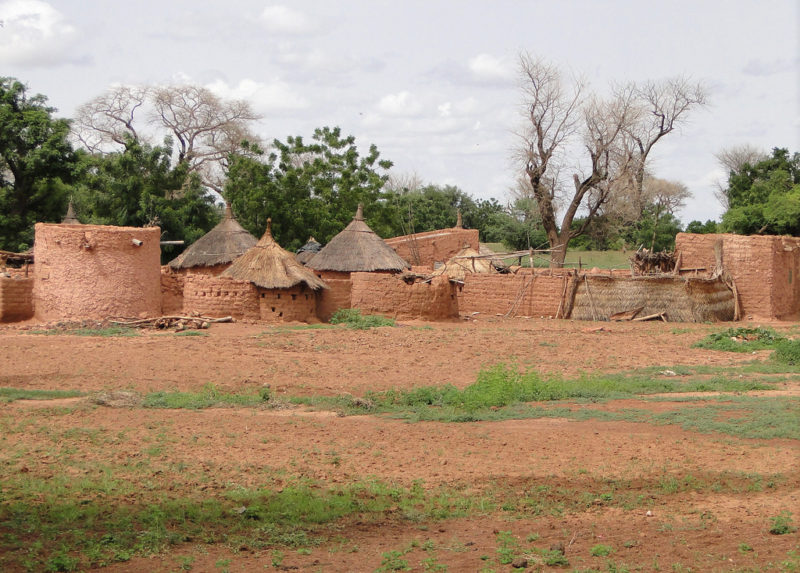- About
- Topics
- Picks
- Audio
- Story
- In-Depth
- Opinion
- News
- Donate
-
Signup for our newsletterOur Editors' Best Picks.Send
Read, Debate: Engage.
| August 05, 2022 | |
|---|---|
| topic: | Conservation |
| tags: | #Africa, #Rwanda, #A-PACT, #conservation, #climate action, #biodiversity |
| located: | Rwanda, Ethiopia |
| by: | Ndi Eugene Ndi |
The initiative known as A Pan African Conservation Trust (A-PACT), conservationists say, is an ambitious vision of creating an independent, African-led, hybrid sustainable financing mechanism that would provide those who manage protected and conserved areas across the continent with the resources they need to do their jobs.
A spinoff of the maiden International Union for Conservation of Nature (IUCN) and Africa Protected Areas Congress (APAC) that wrapped up in Kigali, Rwanda on Saturday 23 July, A-PACT was officially launched by former Ethiopian Prime Minister Hailemariam Desalegn at the congress on 18 July.
Over 2,400 delegates from 53 African countries and beyond, including decision-makers, community and indigenous leaders, youth representatives and scientists, attended the Kigali meeting that aimed to address challenges and drive action for the continent’s more than 8,600 protected and conserved areas under threat from human activity and climate change.
Adopted by the delegates in a document dubbed, 'Kigali Call to Action,' A-PACT was midwifed out of the need to respond to the challenges that protected and conserved areas of all kinds face with securing sustained and sufficient financing for operations, particularly in the face of the abrupt downturn of revenues from tourism that accompanied the global lockdowns to address COVID-19 health risks.
The A-PACT initiative is led by the Kenya-based African Wildlife Foundation (AWF) with the support of other organisations like the Consortium for African Funds for the Environment and IUCN.
"Today, we are here to celebrate what I believe marks a turning point for Africa’s conservation efforts," Desalegn, who serves as A-PACT Steering Committee Chair and a member of the African Wildlife Foundation Global Board, said at the launch of the conservation funding scheme.
"It will be a defining moment because what we are launching today is meant to secure the future of conservation by providing a lasting solution to the funding crisis that has bedeviled protected and conserved areas across Africa for decades," he added.
Globally, it is estimated that there is a funding gap of $700 billion - about 1 percent of global GDP - when it comes to halting biodiversity loss and restoring natural systems.
Africa, on average, spends less than $50 per square kilometer of its 26 million square kilometers of protected and conserved areas, says Kaddu Sebunya, CEO and president of AWF. "So, there is a gap in terms of the money we need and about $2 billion is needed to cover all protected and conserved areas in Africa," Sebunya added.
To him, the $2 billion should not be seen as a huge sum of money, as the continent’s commitments to infrastructure economic development, education and agriculture amounts to trillions of dollars.
"You are not going to be successful in agriculture investment if you haven’t invested in conservation," Sebunya said, explaining that agriculture requires rainfall, water and good soils.
Advocates of the funding mechanism argue that global donations are needed to finance the scheme, as Africa remains the most adversely affected by climate change although countries on the continent are not contributing to global pollution levels.
Yet, for conservation efforts to be successful, Africans need their own funds to drive the agenda through the African-led initiative, according to Frederick Kwame Kumah, AWF Vice President.
"Our hope is that African governments will put money into it [A-PACT], because without Africa having skin in the game, it will be very difficult to call on others. If you call on them, they will drive the ship for you because they are bringing in the money," Kumah explained.
"We can talk conservation, but if we don’t have money, we will not be able to drive the agenda," he added. "At the moment, we are not able to drive the agenda as Africans because the money is controlled by others."
Though the A-PACT needs about $2 billion, Kumah says even half of that can be used as a starting point.
"The idea is to start small and grow the fund, bring in others and make things happen."
"We can talk conservation, but if we don’t have money, we will not be able to drive the agenda."
A-PACT proponents also hope that steering committee members like former Ethiopian Prime Minister, Hailemariam Desalegn, former President of Niger, Issoufou Mahamadou and former President of Botswana, Festus Mogae, will help sell the idea to current heads of State.
The APAC patrons explained the fund to African environment ministers during a meeting a day after the fund was unveiled at the Kigali congress.
Though governments are being requested to finance the conservation scheme, the fund will be held by an independent body, not governments, "so that we don’t have unnecessary political influences," Kumah explains, saying, though, that it will be governed by all key stakeholders from government, non-governmental organisations and private sector who contribute to it.
A-PACT proponents also hope the African Union in the months ahead and later on the African Ministerial Conference on the Environment (AMCEN) slated for September will adopt the scheme when steering committee members and former heads of states pitch the proposal to them.
However, while waiting for the operationalisation of funding scheme, Rwanda, the host of APAC, has become the first country to commit to the trust.
Mujawamariya Jeanne d’Arc, Rwanda’s Minister of Environment, announced at the closing press conference of the six-day APAC that President Paul Kagame had already committed to the fund. She did not give further details.
Image by Hu Chen.
By copying the embed code below, you agree to adhere to our republishing guidelines.

